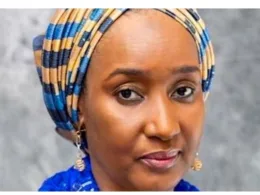Senate President Calls for Tax Reforms Amid Low Compliance Rates
Senate President Godswill Akpabio has revealed that less than 30% of Nigerians contribute taxes to the Federal Government. Despite this, he pointed out that citizens expect high-quality infrastructure, education, security, and essential services from the government.
Akpabio made these comments on Monday during the opening of a public hearing focused on tax reform legislation recently submitted to the National Assembly by President Bola Tinubu on October 3, 2024. He underscored the urgent need for tax reforms, arguing that the country cannot continue with outdated practices that yield little progress.
During the hearing, he assured attendees that once the reform bills are approved, the National Assembly would enhance its oversight to ensure that financial resources are effectively utilized. He also urged Nigerians to participate actively in the legislative process rather than relying on narratives from social media platforms.
“The public hearing should serve as a platform to envision a better Nigeria,” Akpabio stated. He expressed his commitment to engaging in the discussion over the two-day hearing, emphasizing his frustration with the prevalent misinformation circulating online. “Most leaders in this country have criticized the process without even reviewing the content of the bills first,” he remarked.
He encouraged participants to review the tax reform bills in detail, rather than depending on inaccurate information. Attendees at the hearing included the Minister of Finance and Coordinating Minister of the Economy, Wale Edun; Attorney-General of the Federation, Lateef Fagbemi (SAN); Chairman of the Federal Inland Revenue Service, Zacch Adedeji; and the Comptroller-General of the Nigeria Customs Service.
Earlier in the session, Senator Sani Musa, Chairman of the Senate Committee on Finance, emphasized the importance of the tax reform bills. He noted that the committee had brought together 71 stakeholder groups to contribute to the discussions regarding the bills.
“Both the Senate and the House of Representatives have completed a second reading of the reform bills and are now prepared for public hearings,” Musa stated. He added that committee members had thoroughly reviewed the bills, gaining a clearer understanding of their objectives, particularly related to tax administration, collection, and operational efficiency in Nigeria.
Musa further explained that the primary intent of the reform bills is to boost government revenue and promote economic sustainability. “The key purpose of these bills is to outline how the government can increase revenue generation to elevate our country to the status of advanced economies, where vital sectors such as infrastructure, education, and agriculture are appropriately addressed,” he concluded.
The tax reform bills being examined include the Nigeria Tax Bill (NTB) 2024, Nigeria Tax Administration Bill (NTAB) 2024, Nigeria Revenue Service (Establishment) Bill (NRSEB) 2024, and the Joint Revenue Board (Establishment) Bill (JRBEB) 2024. These pieces of legislation successfully passed the Senate’s second reading on November 28, 2024, and have been sent to the Committee on Finance for further assessment.










Join our Channel...